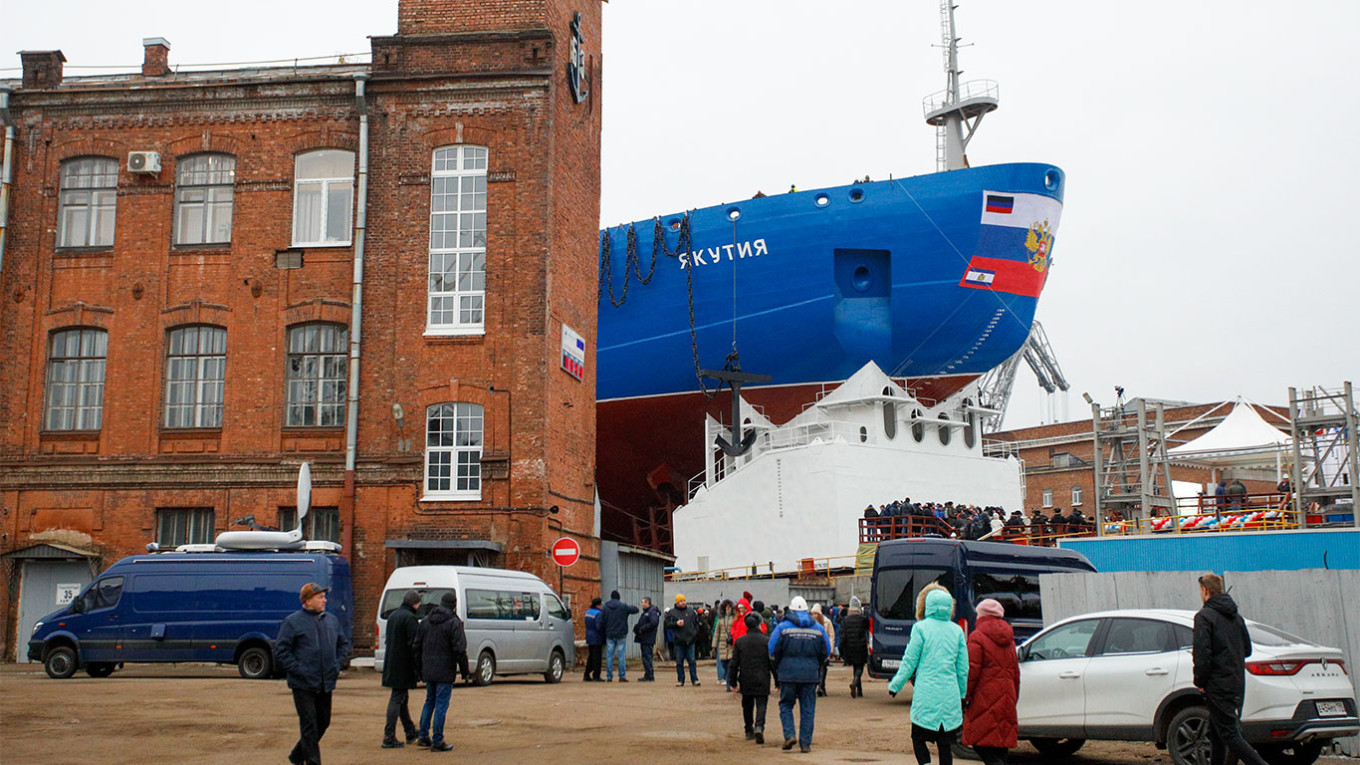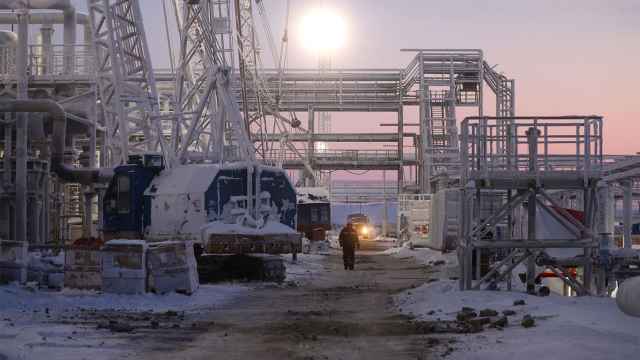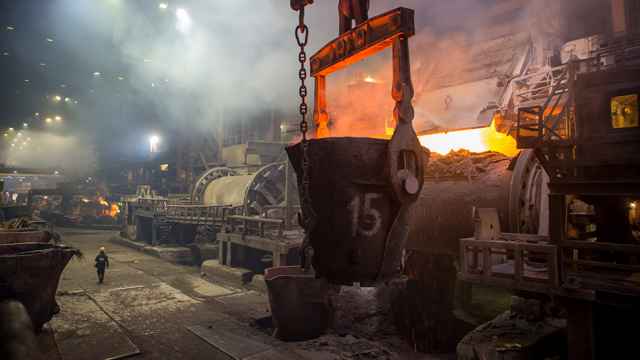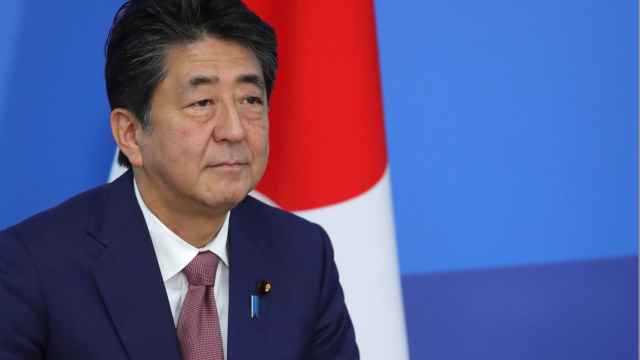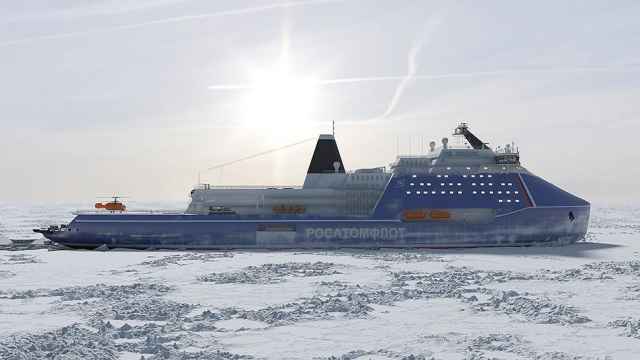President Vladimir Putin on Tuesday oversaw the launch of a new nuclear-powered icebreaker as Russia pushes to develop the Arctic and seeks new energy markets amid sanctions over Ukraine.
Addressing a St. Petersburg ceremony for the launch of the Yakutia icebreaker by video link, Putin said such vessels were of "strategic" importance for Russia.
In addition to floating out the Yakutia, authorities also symbolically raised a flag on another nuclear-powered icebreaker, the Ural.
The Ural and the Yakutia are part of a fleet of nuclear-powered icebreakers that are meant to ensure Moscow's dominance over the melting Arctic.
The Kremlin chief vowed to develop his country's nuclear fleet despite current difficulties in Russia's economy and production in an apparent reference to Western sanctions over Moscow's offensive in Ukraine.
"We will increase the capabilities of our nuclear icebreaker fleet," Putin said.
He said this should be achieved "using domestic equipment and components."
The Ural is expected to become operational in December, while the Yakutia will join the fleet in late 2024, Putin said.
The vessels are designed to resist extreme weather conditions in the Far North, have a length of 173 meters (568 feet) and can smash through ice up to 2.8 meters thick.
The Russian leader said the ships were part of Moscow's efforts "to consolidate Russia's status as a great Arctic power."
He once again stressed the importance of developing the so-called Northern Sea Route, which allows ships to reach Asian ports up to 15 days faster than via the traditional Suez Canal.
"This very important corridor will allow Russia to realize its export potential in full, and establish an effective logistics route to South-East Asia," Putin said.
Moscow has for years heavily invested in the route.
But Putin's military campaign in Ukraine and subsequent Western sanctions have given new urgency to plans to redirect energy exports to Asia.
Russian industries have struggled with production in recent months, deprived of key Western-produced parts due to sanctions.
The vessels are expected to be a game changer for Russia's use of the Arctic.
Transit in the eastern Arctic usually ends in November but Moscow is hoping the icebreakers will help it make use of the route — becoming more accessible due to climate change — year-round.
A Message from The Moscow Times:
Dear readers,
We are facing unprecedented challenges. Russia's Prosecutor General's Office has designated The Moscow Times as an "undesirable" organization, criminalizing our work and putting our staff at risk of prosecution. This follows our earlier unjust labeling as a "foreign agent."
These actions are direct attempts to silence independent journalism in Russia. The authorities claim our work "discredits the decisions of the Russian leadership." We see things differently: we strive to provide accurate, unbiased reporting on Russia.
We, the journalists of The Moscow Times, refuse to be silenced. But to continue our work, we need your help.
Your support, no matter how small, makes a world of difference. If you can, please support us monthly starting from just $2. It's quick to set up, and every contribution makes a significant impact.
By supporting The Moscow Times, you're defending open, independent journalism in the face of repression. Thank you for standing with us.
Remind me later.


